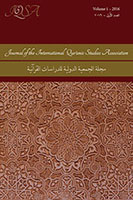A review of the works of the most authoritative Ḥanafī theologians and jurists shows that the later madhhab taught that its eponym, Abū Ḥanīfah (d. 150/767), held the Qurʾān to be the uncreated and eternal speech of God. According to this understanding, he and his followers believed the linguistic composition of the Qurʾān in Arabic to be a component of its miraculous nature. However, a closer examination of Ḥanafī sources leads one to conclude that the claim that Abū Ḥanīfah believed Arabic to be integral to the Qurʾān’s composition is not without contention. Abū Ḥanīfah permitted recitation of the Qurʾān within ritual prayer in Persian, which later Ḥanafī jurists used as a basis to argue that the Qurʾān, for Abū Ḥanīfah, consisted only of its meaning, not its expression in Arabic. After the Miḥnah, Abū Ḥanīfah’s permissive position became associated with the newly heterodox view of the “Created Qurʾān,” placing pressure on later Ḥanafī jurists to ensure that Abū Ḥanīfah was not associated with heresy. Whereas earlier Ḥanafīs contended that the Qurʾān was miraculous solely in its meaning and guiding capacities, later Ḥanafīs, when faced with scandal, condemned the earlier view and reinterpreted Abū Ḥanīfah’s views. The characterization of the miraculous nature of the Qurʾān as inhering in its canonized Arabic expression allowed the Qurʾān to serve as evidence of the prophethood of Muḥammad. This article traces the shift within Ḥanafism on the connection between language and the ontology of the Qurʾān to align with the Sunnī orthodoxy of the uncreated and fully inimitable Arabic Qurʾān. Although some aspects of the roles of Abū Ḥanīfah and Ḥanafism in this evolution have been studied by other scholars, I focus here on an overlooked figure, the proto-Ḥanafī Abū ʿIṣmah Nūḥ b. Abī Maryam (d. 173/789). This case study on the recitation of the Qurʾān in Persian examines and explores the impact of the understudied aspects of this evolution.
Download Resource
A review of the works of the most authoritative Ḥanafī theologians and jurists shows that the later madhhab taught that its eponym, Abū Ḥanīfah (d. 150/767), held the Qurʾān to be the uncreated […]

